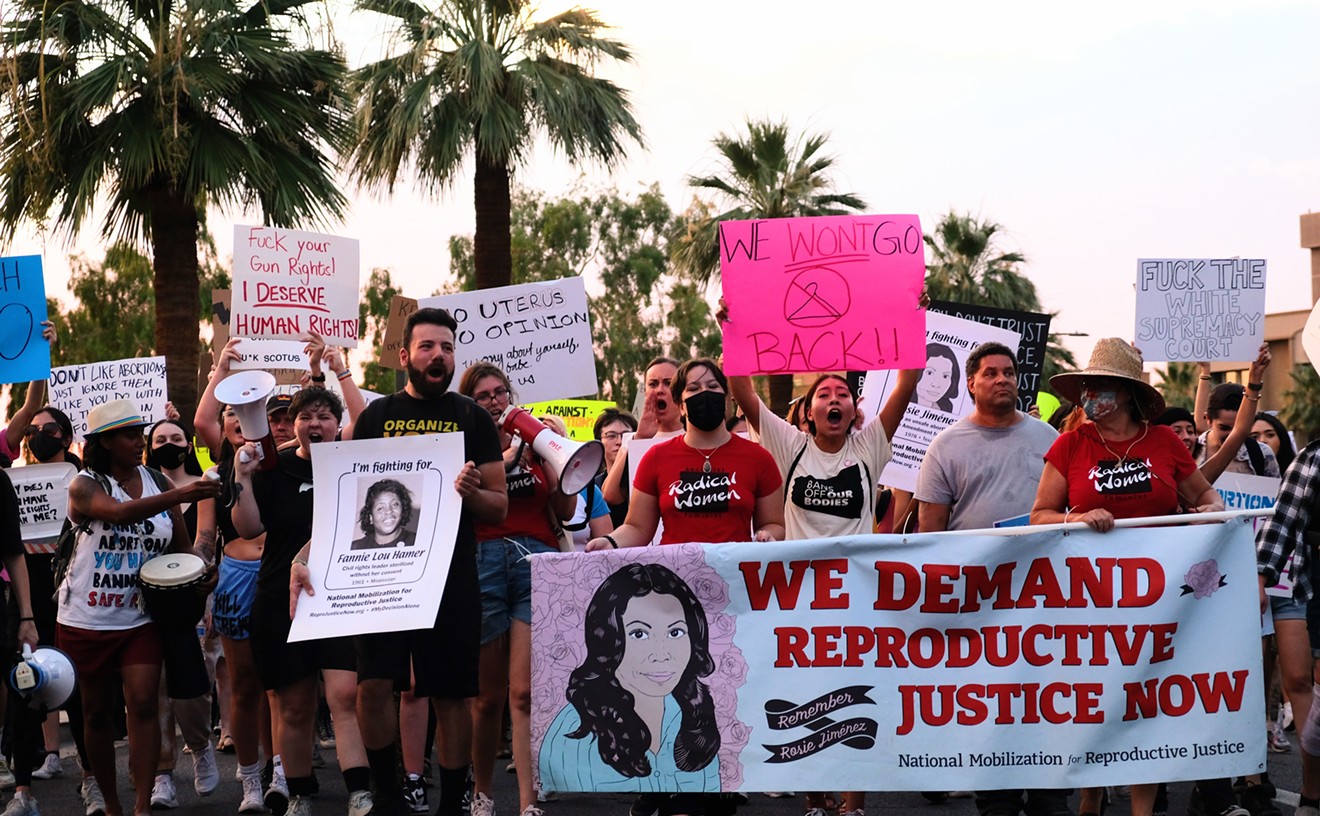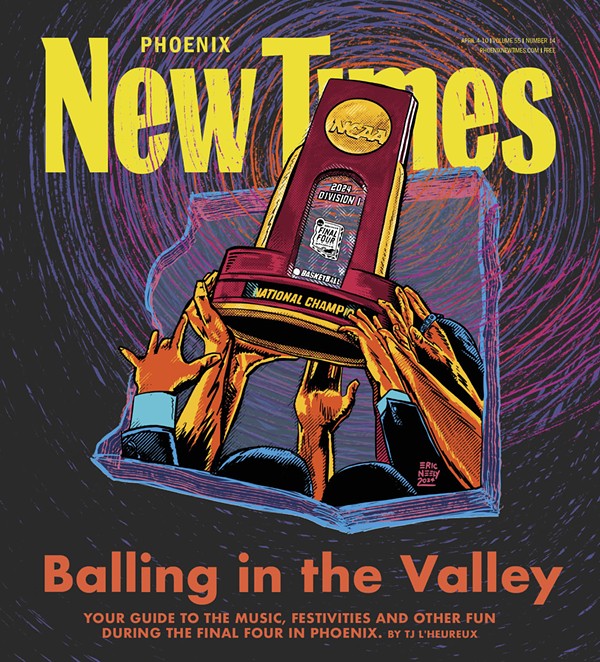Turner has spent the better part of 30 years theorizing that a culture of cannibalism existed among the prehistoric Anasazi peoples who lived in the Southwest until the 1300s and then either mysteriously disappeared or evolved into the present-day Hopi and Zuni tribes ("Indian Stew," Michael Kiefer, January 4, 1999).
And although Turner has painstakingly researched and built his case, it flies in the face of the comfortable old truism that the Anasazi were peaceful people living in harmony with nature, a theory only furthered by New Age sentimentality.
In the January issue of American Antiquity, an archaeology journal, a trio of researchers published their findings about possible prehistoric cannibal sites in Colorado. In the lengthy piece, they referred repeatedly to Turner and his extensive work on the subject.
The journal also published a critique of that article written by Kurt Dongoske, an archaeologist for the Hopi tribe, and two other authors. This critique notes Turner's involvement in the issue, then launches an attack on the cannibal theories, including the notion that talk of cannibalism leads to racism against modern Native Americans when those theories are trumpeted in the mainstream press.
One of the three authors also penned a scathing review of Turner's 1999 book, Man Corn: Cannibalism and Violence in the Prehistoric American Southwest, reiterating the criticism of his extensive studies.
Turner was furious, not just by the attack on his scientific method, but at the suggestion that his studies should be censored because his theories about prehistoric peoples might make people think ill of contemporary Native Americans.
"I'm sorry to say it," he told New Times, "the Indians play the race card all the time."
He fired off a response to the editor of American Antiquity, going through the analysis point by point, and concluding, "In my view, when political correctness, or any form of censorship for that matter, must be considered in scientific investigation, then, propaganda, not objective truth, is to be expected."
The editors of American Antiquity refused to publish his rebuttal. Even though the critique had blasted Turner, it was aimed primarily at the researchers from the Colorado dig, and their own rebuttal is scheduled for the April issue of the journal -- which was not yet out as of June 1.










